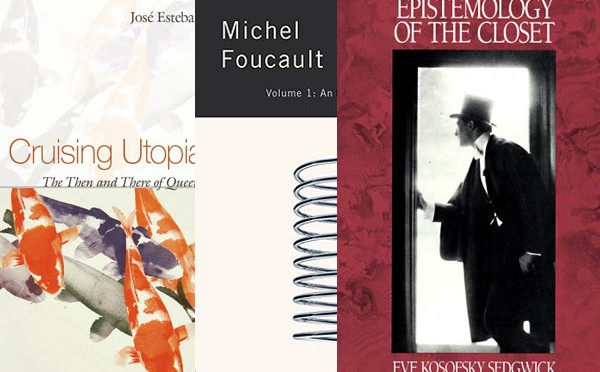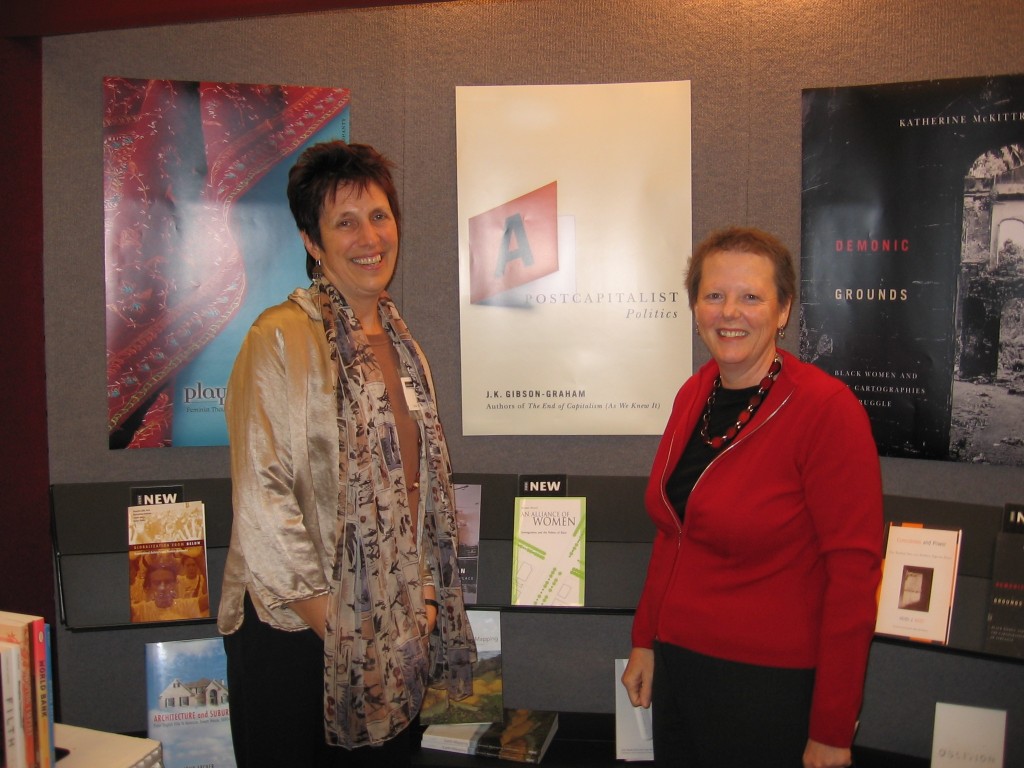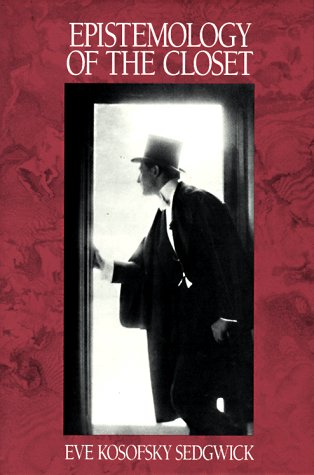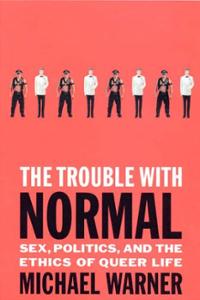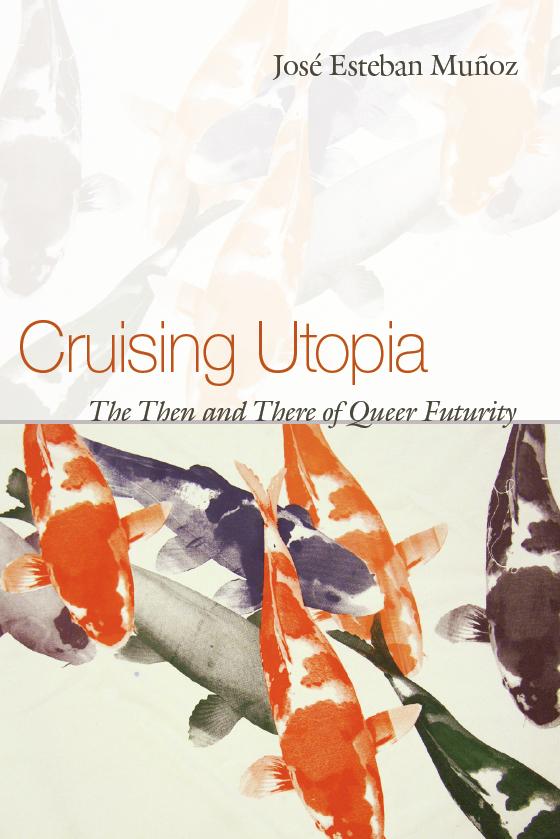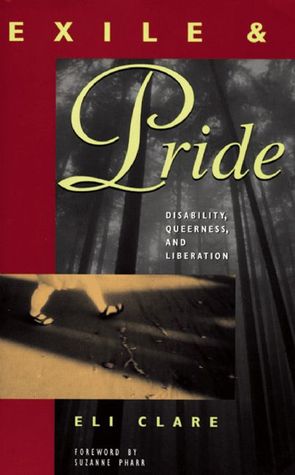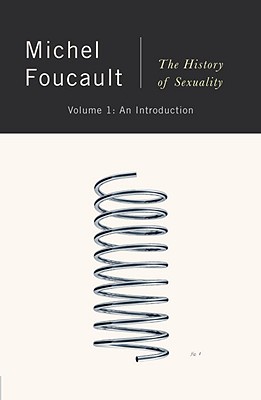#11 J.K. Gibson-Graham – Queer(y)ing Capitalism in and out of the Classroom
J.K. Gibson-Graham explore ways that break down capitalism using queer theory in the classroom.
More info here.
#12 Eve Segwick – Epistemology of the Closet
From Wikipedia:
In Epistemology of the Closet, Sedgwick argues that “virtually any aspect of modern Western culture, must be, not merely incomplete, but damaged in its central substance to the degree that it does not incorporate a critical analysis of modern homo/heterosexual definition.” According to Sedgwick, homo/heterosexual definition has become so tediously argued over because of a lasting incoherence “between seeing homo/heterosexual definition on the one hand as an issue of active importance primarily for a small, distinct, relatively fixed homosexual minority … [and] seeing it on the other hand as an issue of continuing, determinative importance in the lives of people across the spectrum of sexualities.”
Buy it here.
#13 Jack Halbsterstram – Female Masculinity
Masculinity without men. In Female Masculinity Judith Halberstam takes aim at the protected status of male masculinity and shows that female masculinity has offered a distinct alternative to it for well over two hundred years. Providing the first full-length study on this subject, Halberstam catalogs the diversity of gender expressions among masculine women from nineteenth-century pre-lesbian practices to contemporary drag king performances.
Buy it here.
#14 Michael Warner – The Trouble with Normal: Sex, Politics and the Ethics of Queer Life
Is gay marriage good for gays? Are queer people better off when they see themselves as “normal” Americans? What is lost when gays go mainstream? What, after all, is “The Trouble With Normal?” Here, Michael Warner, one of our most brilliant social critics, argues that gay marriage and other moves toward normalcy are bad not just for gays but for everyone. In place of the sexual status quo, Warner offers a vision of true sexual autonomy that will forever change the way we think about sex, shame, and identity.
Buy it here.
#15 Jasbir Puar – “Prognosis Time”

This article brings into conversation theories of affect, particularly thosee merging from technoscience criticism that foreground bodily capacities for affecting or being affected, for change, evolution, transformation,and movement, and studies of disability and debility which complicate these notions of capacity, even while privileging identity-based rights and representational politics that might reinscribe other forms of normativity.I argue for a deconstruction of what ability and capacity mean, affective and otherwise, and to push for a broader politics of debility that puts duress on the seamless production of abled-bodies in relation to disability.Central to my discussion will be formulations of risk, calculation,prognosis, statistical probability, and population construction, whereby identity is understood not as essence, but as risk coding. Affect is thereforea site of bodily creative discombobulation and resistance but one that is also offered up for increasing monitoring and modulation
Read it here.
#16 Jose Esteban Muñoz – Cruising Utopia
The LGBT agenda for too long has been dominated by pragmatic issues like same-sex marriage and gays in the military. It has been stifled by this myopic focus on the present, which is short-sighted and assimilationist.
“Cruising Utopia” seeks to break the present stagnancy by cruising ahead. Drawing on the work of Ernst Bloch, José Esteban Muñoz recalls the queer past for guidance in presaging its future. He considers the work of seminal artists and writers such as Andy Warhol, LeRoi Jones, Frank O’Hara, Ray Johnson, Fred Herko, Samuel Delany, and Elizabeth Bishop, alongside contemporary performance and visual artists like Dynasty Handbag, My Barbarian, Luke Dowd, Tony Just, and Kevin McCarty in order to decipher the anticipatory illumination of art and its uncanny ability to open windows to the future.
Buy it here.
#17 Lisa Duggan – Twilight of Equality
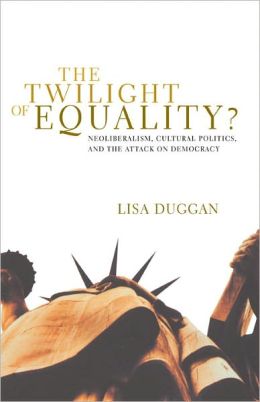 By now, we’ve all heard about the shocking redistribution of wealth that’s occurred during the last thirty years, and particularly during the last decade. But economic changes like this don’t occur in a vacuum; they’re always linked to politics. The Twilight of Equality? searches out these links through an analysis of the politics of the 1990s, the decade when neoliberalism-free market economics-became gospel. After a brilliant historical examination of how racial and gender inequities were woven into the very theoretical underpinnings of the neoliberal model of the state, Duggan shows how these inequities play out today. In a series of political case studies, Duggan reveals how neoliberal goals have been pursued, demonstrating that progressive arguments that separate identity politics and economic policy, cultural politics and affairs of state, can only fail. Ultimately, The Twilight of Equality? not only reveals how the highly successful rhetorical maneuvers of neoliberalism have functioned but, more importantly, it shows a way to revitalize and unify progressive politics in the U.S. today.
By now, we’ve all heard about the shocking redistribution of wealth that’s occurred during the last thirty years, and particularly during the last decade. But economic changes like this don’t occur in a vacuum; they’re always linked to politics. The Twilight of Equality? searches out these links through an analysis of the politics of the 1990s, the decade when neoliberalism-free market economics-became gospel. After a brilliant historical examination of how racial and gender inequities were woven into the very theoretical underpinnings of the neoliberal model of the state, Duggan shows how these inequities play out today. In a series of political case studies, Duggan reveals how neoliberal goals have been pursued, demonstrating that progressive arguments that separate identity politics and economic policy, cultural politics and affairs of state, can only fail. Ultimately, The Twilight of Equality? not only reveals how the highly successful rhetorical maneuvers of neoliberalism have functioned but, more importantly, it shows a way to revitalize and unify progressive politics in the U.S. today.
Buy it here.
#18 Robert McRuer – Crip Theory: Cultural Signs of Queerness and Disability
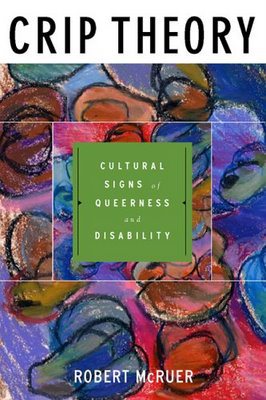
Crip Theory attends to the contemporary cultures of disability and queerness that are coming out all over. Both disability studies and queer theory are centrally concerned with how bodies, pleasures, and identities are represented as “normal” or as abject, but Crip Theory is the first book to analyze thoroughly the ways in which these interdisciplinary fields inform each other.
Drawing on feminist theory, African American and Latino/a cultural theories, composition studies, film and television studies, and theories of globalization and counter-globalization, Robert McRuer articulates the central concerns of crip theory and considers how such a critical perspective might impact cultural and historical inquiry in the humanities. Crip Theory puts forward readings of the Sharon Kowalski story, the performance art of Bob Flanagan, and the journals of Gary Fisher, as well as critiques of the domesticated queerness and disability marketed by the Millennium March, or Bravo TV’s Queer Eye for the Straight Guy. McRuer examines how dominant and marginal bodily and sexual identities are composed, and considers the vibrant ways that disability and queerness unsettle and re-write those identities in order to insist that another world is possible.
Buy it here.
#19 Eli Clare – Exile and Pride
In these interconnected essays, Eli Clare vibrantly describes the “rednecks” and clearcuts she grew up among, the “freak shows” of the nineteenth century, and the “transgender warriors” of today. Her intelligence and wit illuminate her ruminations on cerebral palsy, child abuse, nature, pornography, sexuality, and class.
Exile and Pride is grounded by Clare’s childhood memories of playing in the Oregon mountains and of her increasing realization of the environmental destruction caused by the logging and fisheries industries that employed her neighbors. This disillusionment with trusted sources of safety and belonging echoes with the prejudice she experiences due to her cerebral palsy and with the terror of sexual abuse that filled her childhood. Her self-imposed exile from her hometown remains a tangle of grief and relief, but Clare highlights the pride she has built through participating in the liberation movements of disabled people and queers of all stripes.
In Exile and Pride, Eli Clare uses her own multiple loyalties as a lens to examine identity politics and political agency in the face of systemic oppression and interpersonal abuse. Imaginative and engaging, Exile and Pride will appeal to a wide array of readers.
Buy it here.
#20 Michel Foucault – The History of Sexuality
Buy it here.
Did we miss anything? Let us know in the comments.

